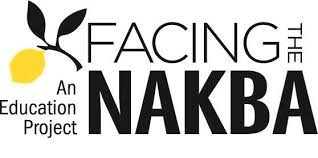Donna Nevel is a community psychologist and educator living in the US. She is a coordinating team member (along with Nava EtShalom, Marilyn Kleinberg Neimark, and Rabbi Alissa Wise) of the Facing the Nakba project.
As a Jew living in the US, I know that many, if not most, of us from Jewish communities grew up learning little, if anything, about the Nakba even though we knew so much—we thought—about the establishment of Israel. After being introduced to what actually happened before and during Israel’s creation, that is, the dispossession of 750,000 Palestinians from their land and homes, I understood that this was a history that had remained untold or distorted within Jewish communities.
Several years ago, I joined with a group of Jewish women who were determined to develop educational resources about the Nakba and the consequences of the Nakba to share within our communities. Over the next number of years, we developed the Facing the Nakba (FTN) project, which includes a seven-session curriculum on the Nakba, past and present, accompanied by a facilitator guide. The resources in the curriculum are heavily drawn from testimonies, first-hand accounts, and histories shared by Palestinians. The goal of the project is to encourage US Jews and others to learn the history of the Nakba, past and ongoing, to reckon with that history, and to act accordingly. We also know all too well that Palestinians continue to be expelled from their homes and their land continues to be stolen as the Israeli government amps up its violence against the Palestinian people.
The FTN curriculum draws heavily on the work of Zochrot, (“remembering” in Hebrew), an Israeli organization that aims to educate Israeli Jews and others about the history and ongoing injustices of the Nakba and promote the right of return of the Palestinian refugees. FTN also draws upon the work of BADIL, a human rights organization committed to defending and promoting the rights of Palestinian refugees and internally displaced persons, within the frameworks of international humanitarian and human rights law.
We remain deeply committed to sharing these resources with Jewish communities in the US and across the globe, as well as with anyone who wants to understand the Palestinian call for justice.
- This article appeared in the AJDS Magazine Just Voices 16: Israel / Palestine 1948

